October 2018 Research, Science and Knowledge
Read the articles selected in October 2018
Learning and teaching in the European Higher Education Area
Source: https://eua.eu
The Process of Bologna and the EU Modernisation Agenda, aimed at improving the learning goals and teaching have oriented institutional strategies. At the European level, the interventions functional to improving learning outcomes and educational approaches instantiate a political priority.
Read more:
https://eua.eu/component/attachments/attachments.html?id=1428
Why apprenticeships are a “win-win” for companies and employees
By Amar Toor
Source: http://www.oecd.org/ 14 August
Apprenticeships programmes not only fill the skills gap that serves for work, but also help young descents to choose their career path or even their course of study at university, and tear down the walls that separate university from other vocational training.
Read more:
Europe’s Plan S aims for expansion to US and beyond
By Rachael Pells
Source: Times Higher Education, 16 October
The Plan S for Open Access from the European Commission has landed on the White House, opening a dialogue with the White House representatives on the opportunities that this transition represents for editors and the enormous benefits respect to the most skeptical editors.
Read more:
https://www.timeshighereducation.com/news/europes-plan-s-aims-expansion-us-and-beyond
The biggest pandemic risk? Viral misinformation
By Heidi J. Larson
Source: Nature, 16 October
More dangerous than ignorance is the “bad science” of those with medical credentials feeding unfunded fears because of commercial or political interests. The letal effects of campaigning against vaccines persist for long time and bring much harm.
Read more:
https://www.nature.com/articles/d41586-018-07034-4
Science needs to address the lack of black role models
By Winston Morgan
Source: University World News,12 October
Black science struggles to rank, for a lack of winning models that could encourage the young Africans to choose a scientific career. This reciprocal relation steals resources to society, which could benefit from the decolonization of science.
Read more:
http://www.universityworldnews.com/article.php?story=20181010085129146
Salzburg II Recommendations
Source: https://eua.eu/
The Salzburg Principles have paved the way for continuous improvements of doctoral training in Europe, establishing the idea of individuality, independence and flexibility of research. Doctoral education plays a central role in the European Research Area and the European Higher Education Area.
Read more:
https://www.eua-cde.org/component/attachments/attachments.html?id=45
How to find the right place for your PH.D. or postdoc
By Elisabeth Pain
Source: Science, 10 September
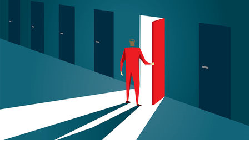
The choice of a lab where to take a Ph.D. or postdoc is never to have for granted since it imprints the basis for the own research and career. Furthermore, it’s about a job, to say the place where researchers live, not only doing science but also spending their energies and establishing relationships.
Read more:
http://www.sciencemag.org/careers/2018/09/how-find-right-place-your-phd-or-postdoc
Nobel Prize for the economics of innovation and climate change stirs controversy
di Adrian Cho
Fonte: Science, 8 Ottobre
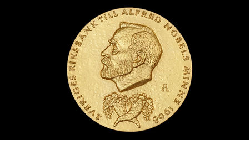
The Nobel Prize in Economic Sciences, assigned to Paul Romer and William Nordhaus, has acknowledged the value of ideas and knowledge in the technological era, the role of economics as the driver of a sustainable world, and growth as the feedback, though controverted, of climate action.
Read more:
http://www.sciencemag.org/news/2018/10/roles-ideas-and-climate-growth-earn-duo-economics-nobel-prize
An academic’s guide to writing well
di Joe Moran
Fonte: Times Higher Education, 4 Ottobre

Some tips to revive academic writing: restoring the role of verbs in the phrase and limiting the use of nouns, prepositions, suffixes, compounds, and subordinate clauses. And, last but not least, loving our own writing, as a gift of rationality and passion.
Read more:
https://www.timeshighereducation.com/features/academics-guide-writing-well
The future of Education and Skills Education 2030
Source: http://www.oecd.org
This paper provides the vision of a new world through education. The rapid advance of science and knowledge while uncertainty and exposure to risk and crises are increasing needs reflection and anticipation through the development of disciplinary, broad and meta-cognitive skills.
Read more:
https://read.oecd-ilibrary.org/education/teaching-for-the-future_9789264293243-en#page16
Reasons to step EU investment in Research and Innovation
Source: https://eua.eu/
At the European level, R&I spending not only does produce increased value for tax payer’s money, but also is nurtured as a public good, the key of the fundamental policies from where is growing a new type of research community, and a science diplomacy to tackle the major global challenges.
Commission Staff Working Document Interim Evaluation of Horizon 2020
Source: European Commission
Horizon 2020, the current EU R&I Framework Programme, reflects, more than the single policies, the position of Europe in the world. It defines in its objectives the challenges to be addressed, leaving to research the task to find the solutions e and raise new questions.
Read more:
https://ec.europa.eu/info/sites/info/files/swd2017221f2staffworkingpaperenv4p1888254.pdf
Cancer immunotherapy pioneers win Medecine Nobel
By Gretchen Vogel, Jennifer Couzin-Frankel & Dennis Normile
Source: Science, 1 October
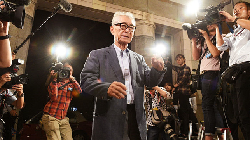
Immunotherapy, switched from experimentation to the cure thanks to the courage of a biotechnological start-up, overcoming the diffidence of the major pharmaceutical companies, owes its results to fundamental research, and this is the message for basic science that the winners intend to transmit.
Read more:
To overcome decades of mistrust, a workshop aims to train Indigenous researchers to be their own genome experts
By Lizzie Wade
Source: Science, 27 Settembre
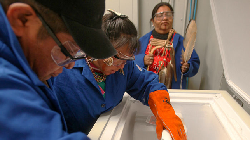
A project funded by the National Institute for Health and the NSF wants to change the reciprocal relationship between the Indigenous Indian communities and science, opening research to the Indigenous perspective, and bringing to science a world heritage.
Read more:
Fears for repositories after EU backs new copyright rules
By David Matthews
Source: Times Higher Education, 24 September
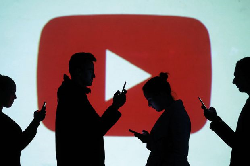
After some academic groups, the exemption from the rule on copyright included in the new European directive misses the goal to protect the purposes of education and research because it requires the authorization of all right holders.
Read more:
https://www.timeshighereducation.com/news/fears-repositories-after-eu-passes-new-copyright-rules
Marie Sklodowska-Curie actions
Source: European Commission
The MSCA are events and initiatives organized by the EC within Horizon 2020 to foster research and innovation on the principle of mobility. One of the MSCA is the European Night of Researchers, which intends to improve the awareness of the meaning of science in our everyday life.
Read more:
https://ec.europa.eu/programmes/horizon2020/en/h2020-section/marie-sklodowska-curie-actions
Science with and for Society
Source: European Commission
The SWAFS Work Programme 2018-2020 focuses on the interplay of science and society in their evolution. A good and responsible science generates a good society. Research progress today can’t do without being a citizen science and is driven by the urgency to address societal challenges.
Read more:
http://ec.europa.eu/research/participants/data/ref/h2020/wp/2018-2020/main/h2020-wp1820-swfs_en.pdf
Ambitious funding for excellent research
Source: https://eua.eu/
The future Framework Programme intends to keep up with the demand for knowledge from European society and economy, to flourish as a civilization and grow in competitiveness. The next FP should ensure to finance more excellent FP proposals and reduce the participation gap, funding the costs of applications.
Read more:
https://eua.eu/component/attachments/attachments.html?id=1333
Education at a Glance 2018
Source: http://www.oecd.org/
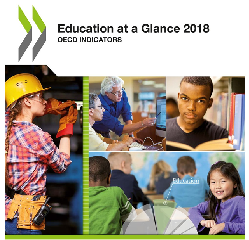
Delivering a high-quality learning environment is the primary investment of a country: as Socrates said, how education starts will determine the entire life of an individuum and a community. Inequalities, whether socioeconomic, ethnic, or cultural, tend to accumulate through the generations.
Read more:
https://read.oecd-ilibrary.org/education/education-at-a-glance-2018_eag-2018-en#page1
Meta-analyses were supposed to end scientific debates. Often, they only cause more controversy
By Jop de Vrieze
Source: Science, 18 September
The meta-analysis or systematic review of the scientific debate on a research issue as resulting from the scientific literature is an important tool to making the point of science in a given subject, but without clear and basic rules of method and transparency, it is a weapon for academics with vested interests.
Read more:
“Journalologists” use scientific methods to study academic publishing. Is their work improving science?
By Jennifer Couzin-Frankel
Source: Science, 19 September
Journalology, rather than a science, is a discipline and a movement, with the aim to restore the scientific publications, especially in the medical field, with method and rigor, in an editorial world increasingly chaotic and predatory.
Read more:
Info
- Pubblicato il : 14/01/2019 Modificato il : 04/04/2019

